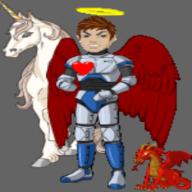✔ 最佳答案
Hong Kong is frequently described as a place where East meets West, a meeting reflected in its economic infrastructure, education and street culture.
British rule may have ended in 1997 but Western culture is deeply ingrained in Hong Kong and coexists seamlessly with traditional philosophy and practices of the Orient. On one street corner, there may be traditional Chinese shops selling Chinese herbal medicine, Buddhist paraphernalia or bowls of synthetic shark fin soup. But around the next, one may find theatres showing the latest Hollywood blockbuster, an English-style pub, a Catholic Church or a McDonald's.
The region's official languages are Chinese and English; signs in both languages are omnipresent throughout Hong Kong. The government, police and most workplaces and stores conduct business bilingually.
While Hong Kong is a global centre of trade, another famous export is its entertainment industry, particularly in the martial arts genre. Several Hollywood performers originate from Hong Kong cinema, notably Bruce Lee, Chow Yun-Fat, and Jackie Chan.
A number of Hong Kong filmmakers have also achieved widespread fame in Hollywood, such as John Woo, Wong Kar-wai and Tsui Hark. Homegrown films such as Chungking Express, Infernal Affairs, Shaolin Soccer, Rumble in the Bronx and In the Mood for Love have also gained international recognition.
Hong Kong is also the world's main hub for Cantopop music.
The Hong Kong government also supports cultural institutions such as the Hong Kong Heritage Museum, Hong Kong Museum of Art, the Hong Kong Academy for Performing Arts and the Hong Kong Philharmonic Orchestra.
Furthermore, the government's Leisure and Cultural Services Department also subsidise and sponsors international performers brought to Hong Kong.

